The Triumph of Christianity: How a Forbidden Religion Swept the World
£0.90
How did Christianity become the dominant religion in the West?
In the early first century, a small group of peasants from the backwaters of the Roman Empire proclaimed that an executed enemy of the state was God’s messiah. Less than four hundred years later it had become the official religion of Rome with some thirty million followers.
It could so easily have been a forgotten sect of Judaism.
Through meticulous research, Bart Ehrman, an expert on Christian history, texts and traditions, explores the way we think about one of the most important cultural transformations the world has ever seen, one that has shaped the art, music, literature, philosophy, ethics and economics of modern Western civilisation.
Read more
Additional information
| Publisher | Oneworld Publications (22 Feb. 2018) |
|---|---|
| Language | English |
| File size | 1426 KB |
| Text-to-Speech | Enabled |
| Screen Reader | Supported |
| Enhanced typesetting | Enabled |
| X-Ray | Not Enabled |
| Word Wise | Enabled |
| Sticky notes | On Kindle Scribe |
| Print length | 353 pages |






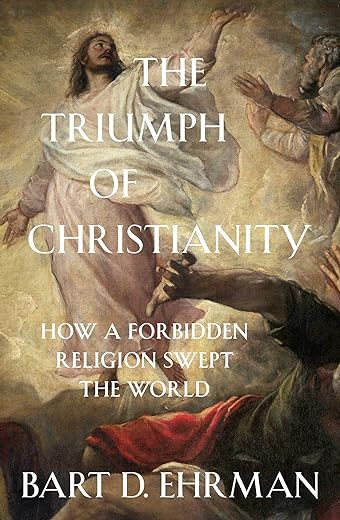
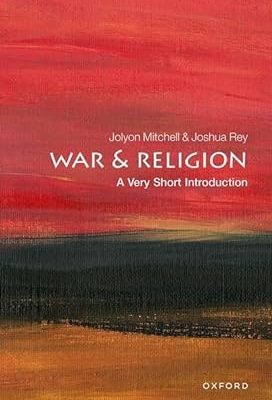
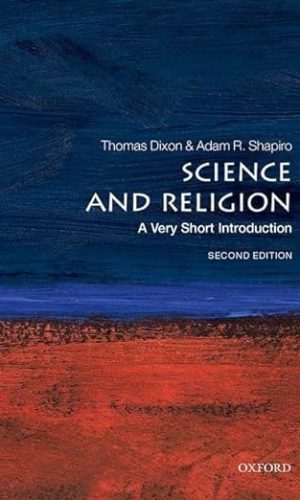

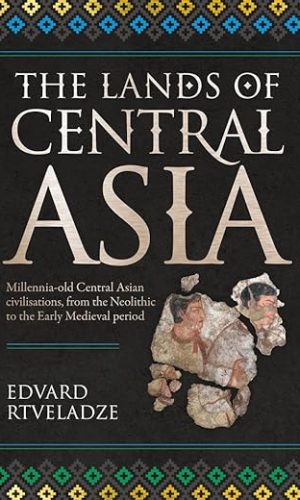

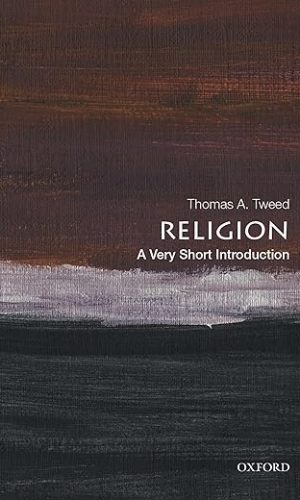

by Themistoklis Fiotakis
Bart Ehrman belongs to this – not so small anymore – group of scholars whose studies of religious scripture clashed heavily with pre-existing beliefs.
The net result delivers a degree of bias, which is visible in this book.
It is not his suppositions or postulations that are unlikely. Quite the opposite. He presents a great deal of good and credible evidence to make good points about how the structure of Christian beliefs contributed to its growth but also to intolerant elements within it. His presentation of the critical elements to conservative faith, tradition and beliefs is strong and credible.
Where the bias is visible is his lack of any concern or interest in accrediting alternative angles.
A good example is when he quickly dismisses the impact that the core message of christianity may have had as an element of appeal. The potential inspiration that belief and martyrdom may have inspired. The role of compassion within medical and other charitable christian structures in conversion. The role of ethics on the female christian members etc.
Another good example comes when he tries to somehow draw clear distinctions between paganism as a ritualistic set of beliefs vs Christianity’s focus on afterlife. There are very powerful arguments that delineate hellenistic beliefs, platonism and early christian or even first century jewish worldviews. There are also powerful demonstrations on how christianity merged with paganism in numerous locations in acquiring beliefs even in replacing deities with christian saints and religious figures.
And of course, there is an implicit portrayal of paganism as more innocuous morally or culturally which is problematic.
The main result presents itself early. From early on a very negative view of the human kind and human spirituality is presented. One where the only reason why people believe is for personal gain and other incentives. This when all of human history and definitely a large part of Christian history is abundant in figures who gave everything to change the world for the better and defend their beliefs – with Jesus or Paul or Polycarp etc being among them.
All that said the book is well written, digestible, presents some good sources for interested readers. I enjoyed the chapters and arguments on Constantine as well as those on Paul.
Read but apply this grain of salt especially on negative statements.
by Marin P
The spread of early Christianity is, at least for me, one of the most surprising facts of our history.
A small-time preacher, with a short activity and little following became almost overnight the embodiment of the basic tenets of the most followed religion in the world.
In its first almost 300 years it conquered the Middle East, North Africa and Europe without any help from political authorities and despite persecutions.
Its message was so revolutionary and attractive that at the time when Constantine adopted it, it was already the most spread and organised religion within the Roman Empire.
I always wondered how it happened and this book gave me a lot of answers.
The doctrine evolved over centuries but the messianic message and resurrection attracted and gave hope to the initial Jewish followers.
“Jesus was the messiah, but not one anybody had expected. By raising Jesus from the dead, God showed that his death had brought about a much greater salvation than anyone had anticipated. Jesus did not come to save God’s people from their oppression by foreign power; he came to save them for eternal life. This is what the earliest Christians proclaimed.”
The word was quickly spread by the initial followers, Paul being the most important of them all.
His interpretation of the meanings of Jesus life and sacrifice made the new faith easily attractable to the gentiles.
“If the salvation of God came by the death and resurrection of Jesus, this must be how God had planned all along to save his chosen people. That must mean that salvation could not come in any other way-for example, by the zealous adherence to the prescriptions of the Jewish law. If salvation could come by belonging to the covenantal community of the chosen people, or by keeping the Law of Moses, there would be no reason for God’s messiah to have suffered an excruciating death.
Following the law thus must have no bearing on how a person stands in a right relationship with God.
That in turn had inordinately significant implications. If the law had no bearing on a person’s standing before God, then being a Jew could not be required for those who wanted to belong to God’s people and enjoy his gracious act of salvation. The only requirement was trusting in the sacrificial atonement provided by Christ. That in turn meant that the message of salvation was not for Jews alone. It was for all people, Jew and gentile. And it came to gentiles apart from observing the Jewish law.
Thus, to be members of God’s covenantal people, it was not necessary for gentiles to become Jews.”
This idea will be further developed by Luther. As lately I am very much into Christian studies, I just bought a book about him as well ????.
But I digress, for Paul “God had not abandoned the Jews or vacated the Jewish religion; Christ himself had not opposed the Jewish faith or proposed to start something new. Christ stood in absolute continuity with all that went before. But, for Paul, without Christ the Jewish faith was incomplete and imperfect. Christ was the goal to which that faith had long striven, and now he had arrived. True, in his own eyes he did not stop being a Jew or think he was preaching a message at odds with Judaism. But he did turn around the literal meaning of “conversion” – making a radical change in his understanding of that religion and, even more obviously, in his understanding of Christ, rejecting his earlier view of Jesus as condemned by God and coming to see him as God’s messiah. For Paul, this was the completion of God’s plan for the human race. Paul’s mission had been predicted by the prophets of old, in anticipation of the coming kingdom of God. Paul was to bring the history of the world to its preordained climax.”
“Paul’s message, in a nutshell, was a Jewish apocalyptic proclamation with a seriously Christian twist. God was saving this world.
He had destroyed the power of sin by the death of Jesus; he had destroyed the power of death by the resurrection of Jesus; and he would destroy the power of evil by the return of Jesus. It was all
going according to plan. Paul knew for a fact that it was because with his own eyes he had seen that Jesus had been raised from the dead.
He also knew that Jesus was soon to return. This time he would not come meekly.”
As we all know, Jesus did not come back (yet), but Paul assured the followers, as Jesus did as well, that the day of the reckoning will be during their lifetime. This apocalyptic expectation was one of the main attractions of the new faith. Later on, the unfulfilled expectation was dealt with, more of less credible, by other authoritative biblical scholars.
Regrettably, as there are almost no sources about the initial spread of Christianism, the author jumps up from Paul directly to Constantine.
“Roman religions involved many gods; they were all about practice, not about belief; they had no orthodoxy or heresy, no doctrines, almost no ethical requirements (with a few exceptions, such as a proscription of parricide), and no sacred “Word of God” giving instructions about theology or daily ethical practices. There were no trans-regional religious organizations or leaders. The religions on the whole were massively inclusive and highly tolerant. They principally entailed cultic activities of prayer, sacrifice, and divination.
They all subscribed to the existence of many gods and all were based on cultic acts of worship, such as sacrifice, prayer, and divination. As such, they were by and large inclusive. None of them insisted their god was the only divine being, or that this god was to be worshiped in only one particular way everywhere. As a corollary, these religions were highly tolerant of differences. So too was the Roman government, both centrally in Rome and throughout the provinces. There were exceptions, but only when a cult was judged to be morally degenerate or socially dangerous.”
Only the Jews believed in a single god and rejected all the others but they didn’t actively sought converts. In that world, the evangelizing mission of the Christian church was unparalleled and unprecedented: “Such a proselytizing mission was a shocking novelty in the ancient world” and, as we know, it will never stop.
“If the concerted attempt to win converts was not a standard feature of ancient religion, even Judaism, why did Christianity become missionary? Some informed intuition would suggest that surely it had to do with the nature of the Christian message. Christians as early as Paul-the first to undertake a worldwide mission-maintained that Christ died because it was God’s plan to bring salvation to the world.
Those who did not experience this salvation were lost, doomed to punishment. As an apocalyptic Jew, Paul, and then his converts, insisted God was soon to enter into judgment with this world. A cataclysmic act of destruction was to occur. Those who were in Christ would be spared the onslaught and be brought into God’s eternal kingdom. Those who were not would be destroyed.”
“Christianity was the only evangelistic religion that we know of in antiquity, and, along with Judaism, it was also the only one that was exclusive. That combination of evangelism and exclusion proved to be decisive for the triumph of Christianity. If it had been evangelistic but not exclusive, it may well have gained adherents, but paganism would have remained unaffected. Pagans would simply have begun to worship Christ along with whatever other gods they chose: Jupiter, Apollo, Diana, Mithras, Isis… take your pick. If, on the other hand, it had been exclusive but not evangelistic, Christianity, like Judaism, would have simply been an isolated and marginal religion without masses of adherents.”
There are no sources naming evangelistic rallies, so the author presumes, correctly I think, that the Christianism spread simply by word of mouth within their various networks of personal relationships, with converts telling their families, friends, neighbours and other associates of the “good news” they had come to believe.
What made the difference were the amazing stories that verified the Christian message. From the beginning, starting with the astounding life and ministry of Jesus himself and continuing through the work of his apostles and then their successors, the power of God had been manifested in real and tangible ways.
God was at work, and his followers could prove it through the miraculous activities they engaged in.
Few people could claim to have observed any of these spectacular miracles of faith. But that was not necessary. All that was needed was belief that such things had in fact happened, and possibly that they continued to happen.
The more the stories were told, and told with conviction, the more listeners were likely to think they might be true.
These stories were accompanied by the insistence that God’s power manifest in the world now simply foreshadowed what was to take place in the hereafter. The people of God were about to enter an eternity of joy, peace, and glory. But those who refused to accept the message would pay an ultimate price. The sufferings of the present age were nothing in comparison with the torments that awaited those who rejected the truth and continued to worship the minions of evil.
Pg 154 There is a good deal of evidence to suggest that, far more than the glories of heaven, it was the tortures of hell that convinced potential converts. The hellish vision is certainly one that obsessed a number of Christian authors, some of whom delighted in thinking how their enemies among the pagans would roast forever.
Unrepentant pagans recognized the rhetorical force of these descriptions. Thus, the second-century critic Celsus pointed out that Christians succeeded in their proselytizing because they “invent a number of terrifying incentives. Above all, they have concocted an absolutely offensive doctrine of everlasting punishments and rewards, exceeding anything the philosophers. . . could have imagined.”
Christians too declared the effectiveness of divine terrors. As Augustine declared: “Very rarely, no never, does it happen that someone comes to us with the wish to become a Christian who has
not been struck by some fear of God.
There is a good deal of evidence to suggest that, far more than the glories of heaven, it was the tortures of hell that convinced potential converts. As Augustine declared: “Very rarely, no never, does it happen that someone comes to us with the wish to become a Christian who has not been struck by some fear of God.”
There are not enough sources to chart the Christian growth with precision, but a steady growth can explain it.
“It would be a mistake to think that it was Constantine’s conversion alone that facilitated the Christianization of the empire. If Christianity had simply continued to grow at the rate it was growing
at the time of the emperor’s conversion or even less-it still would have eventually taken over.
It is impossible to say what would have happened if Constantine had not converted. One could argue that, had the Romans been even more determined to stamp out the faith, they could have done so. Or one could argue the opposite: that even more rigorous Roman opposition would have hardened the Christians’ resolve and made them more fervent in the propagation of their religion, making true Tertullian’s claim that the blood of martyrs was the seed of the church.”
“We will never know what might have happened. But we do know what did happen. Constantine converted at an opportune moment. Christianity was poised to grow exponentially even as its rate of growth slowed. The masses did begin to pour in. The emperor showered favours on a religion that excluded the possibility of all other worship. From that point on, looking at the matter in hindsight, the pagan cults of Rome were doomed. An exclusive commitment to the one God of the Christians destroyed the other religions in its wake. Within eighty years of Constantine’s conversion, the transformation would be both massive and official. Rome would become predominantly and officially Christian.”
“Christianity was not declared illegal in the empire before the middle of the third century. There were no empire-wide laws or decrees issued by the central authorities in Rome that proscribed the faith. Christians did not, as a rule, go into hiding. For the most part they lived perfectly normal lives in the midst of other people who practiced a wide variety of other religions. The catacombs were not meeting places for Christians forced to congregate in clandestine cells for fear of violent perception. Persecution itself was rare, and there were relatively few casualties.
When it happened, it was not because the Christian religion was illegal per se; it was because the Christians were perceived as dangerous, either to the social well-being of a local community or, eventually, to the ongoing health of the entire empire.
Nero did not, technically speaking, prosecute Christians for being Christian. He executed them for committing arson. True, they probably were not guilty, but that was the charge. Being a Christian was not punishable, but setting fire to Rome was. “Third and finally, Nero’s persecution was localized. It involved only the city of Rome. Between Nero in 64 CE and Marcus Aurelius in 177 CE, the only mention of an emperor’s intervention in Christian affairs, apart from the episode involving Trajan found in Pliny’s letters, is a letter from the emperor Hadrian that gives instructions to a local governor to conduct his trials against the Christians fairly.
Nevertheless, the official Christian propaganda is full of martyrs. Nothing new, even the communists invented their own martyrs.
Surprisingly for people like me who did not read much about this era, Constantine did not make Christianity the official state religion of the Roman Empire.
“On the contrary, Constantine had no mission to convert the masses of pagans who continued to follow traditional religious practices. He was content to practice Christianity himself, to support and promote the activities of the church, to intervene in ecclesiastical affairs when issues of unity arose, to fund the building of churches, and to provide social and economic advantages to Christian clergy.
During Constantine’s reign, Christianity was certainly a favoured religion, and it probably did not require extraordinary intelligence for members of the imperial elite to realize that converting to the faith would not hurt their chances for advancement.
He certainly converted to worship the Christian god alone in 312 CE, in connection with the battle at the Milvian Bridge, even if it took a long time for him to realize fully what it meant to embrace the Christian faith. Still, this was a genuine conversion. At that point Constantine dedicated himself to honouring and obeying the god of the Christians. He did not do so with complete success, if being a faithful Christian means loving your enemies and turning the other cheek. Then again, he was not the sort of figure Jesus would have envisioned while preaching in rural Galilee. Constantine was an emperor with enormous burdens and responsibilities. Harsh legislation and the occasional ruthless act were all part of the job.
Possibly the most important thing Constantine did for the future of the religion is that he saw that his sons were raised in the Christian tradition in preparation for what was to come next. With the exception of the nineteen-month reign of Constantine’s nephew, Julian, in 361 to 363 CE, every remaining Roman emperor was Christian.
Constantine also set an important precedent in his decision to intervene in ecclesiastical affairs. His intervention makes perfect sense in a Roman imperial context. All of Constantine’s predecessors had been the chief priest, the pontifex maximus, of the religions of Rome – as was he, despite the fact he was a Christian
Even though he was a complete neophyte, a theological child, Constantine thrust himself into matters of Christian polity and theology.
A unified church was important for a unified empire. And a disunified church or at least parts of it-obviously failed to carry out the will of the God over all. That could lead to disaster.”
“By the end of the fourth century the first Christian emperor’s decision to prefer persuasion to coercion had become a thing of the past. Christianity was declared the state religion. Traditional pagan practices were proscribed, temples were levelled, and sacred cult objects and art were destroyed.”
And thus, the heroic rise entered into an intolerant era, one reason being the intolerant potential of this exclusivist religion, and the other being the almost absolute power it had for a long time over its subjects, but this is a matter for other academic studies.
This journey into the fog of early Christianism was very educative and thrilling for me.
I recommend it.